The Automation-Resistant Accountant: How you can navigate the dawn of AI
.webp)
Automation has come for finance and accounting, just like every other business function. As an accountant, you might be wondering: Will accounting be automated?
The short answer is: No, accounting is unlikely to be fully automated. However, the accountant's role will change, and you must begin adapting for the future.
Here's how you can keep ChatGPT from taking your job, keep pace with automation advancements, and add more value to your company.
What Is Accounting Automation?
Accounting automation (or robotic process automation) refers to companies using software to execute accounting tasks instead of using human beings. Given this explanation, you might think a machine will replace everything you do.
However, the automation picture is far more nuanced.
Historically, accounting has always faced a wave of automation. Mechanical calculators replaced hand calculations, removing that skill set in the accounting profession and bookkeeping.
Digital calculators replaced mechanical ones, and Excel spreadsheets removed digital calculators from the workflow.
Modern ERPs eliminated handwritten journal entries, shifting accounting skill expectations. Macros automated complex analysis, data formatting and organization.
Accountants and accounting jobs did not go extinct because of those innovations. Instead, accounting skill sets changed, and accountants adapted to them successfully. The latest artificial intelligence (AI-) powered automation wave extends this historical trend.
Accountants have always remained essential because accounting automation software has its limits.
The Limits of Accounting Automation and AI
AI and automation will change accounting processes. However, AI cannot replace human creativity, adaptability or inspiration in accounting workflows. It also cannot understand how business sector context changes accounting rule implications.
For example, an AI accounting assistant at a payment processing SaaS company will understand the implications of agent versus principal classification per ASC 606. However, only a human accountant will understand the extent to which these rules apply to their company's objectives and strategy.
While AI accounting software can make broad suggestions, it cannot understand specific business context—the kind that makes a difference to your company’s bottom line.
Here are a few more scenarios AI cannot handle right now:
- Analyzing the context behind suspicious transactions in forensic accounting.
- Re-classifying expenses and deductions based on unique business context and tax codes to boost earnings.
- Communicating the impact of financial reports and financial statements to department leaders.
- Analyzing budget variances for issues with business unit inputs and sector economic considerations for context.
- Aligning best practices with sales leaders to reduce complexity in accounts receivable processes.
- Decision-making on when technical accounting firms or consultants should weigh in
- Collaborating with FP&A teams on the right accounting data architecture for forecasting.
- Executing audits and judging pass/fail conditions given qualitative data.
These tasks need human judgment, context, and creativity—qualities AI cannot replicate. Even if AI does develop these abilities, its output will depend on the financial data you feed it, necessitating human screening by accounting professionals for biases and anomalies.
What Can You Automate in Accounting?
Despite limitations, AI will replace tasks human accountants currently execute. Much like Excel and macros shifted accounting skill sets, your company will probably automate the following:
- Real-time matching of receipts through optical character recognition (OCR) to statement entries when reconciling transactions.
- Automating data entry for credit card transactions and bank reconciliations.
- Drafting variance explanations based on changes in the underlying accounting data for variance analysis.
- Managing journal entries and reviewing notes during monthly closes.
- Sifting through data in the general ledger to retrieve answers to simple questions like, "How much did we spend on X last month?"
Note that even though these tasks have significant software involvement, humans must oversee them and validate output. As an accountant, your time to execute these repetitive tasks will decrease thanks to software.
Forrester Consulting's recent report on finance automation highlighted this fact. 79% of FinOps decision-makers believed automation would free finance and accounting teams' time to add strategic value, with 76% indicating technology could transform finance from a bottleneck to a strategic partner.
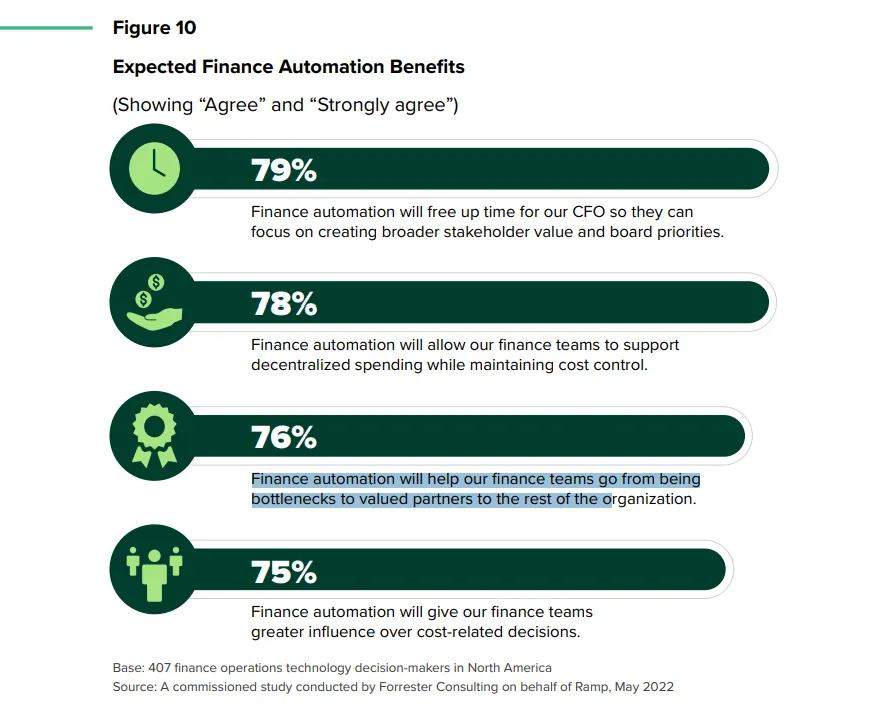
The bottom line: Repetitive, high-volume tasks (that you probably never enjoyed) are ripe for automation. Any task needing creativity and interpretation through context will remain unaffected by automation.
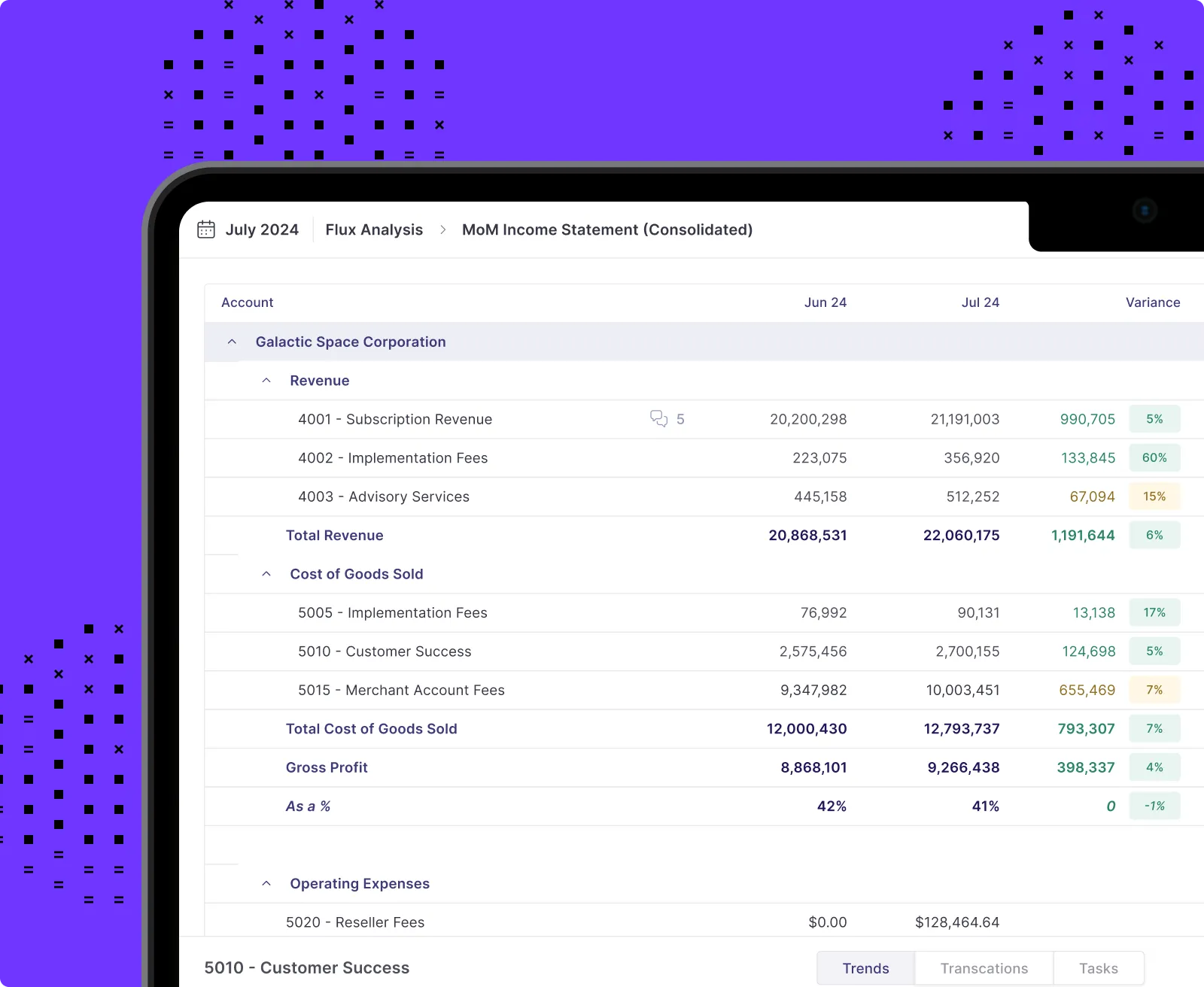
How Automation Will Change the Accountant’s Role
Forrester's report identified the reasons driving company investment in automation technology.
Examining the benefits finance leaders are receiving and expect to receive from automation is instructive.
They reveal skills you must prioritize to align yourself with the future of accounting.
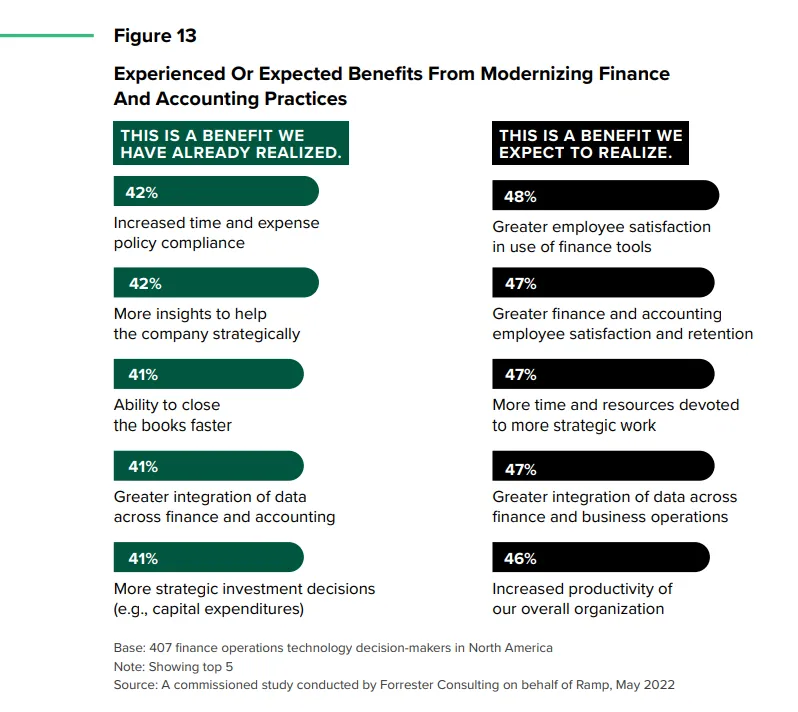
Here are the skills accountants must prioritize to add value to their organizations in the face of automation.
Accountants Must Become Connectors
Accountants of the future must deliver strategic business insights in easily understood language. They must move away from merely entering data and answering simple questions.
Accountants must become storytellers, collaborating with other departments to bring context to data and illuminate the path forward for executives. For example, accountants must work with sales to understand commission implications and with FP&A to ensure accurate reporting.
Speaking to the Journal of Accountancy, Liz Barhydt, CMA, CPA, and CFO at Pardon Inc., says, "Financial storytelling isn’t just using stories to make numbers more relatable. At its core, it’s persuasion, explanation and creating motivation to inspire action and change behavior.”
Accountants Must Embrace Technology
Instead of shying away from automation, accountants must embrace and use it to impact their companies. Besides, as Forrester's report shows, company leaders are not slowing their investment in financial technology.

Accountants must align themselves with this flow and embrace technology. Writing for the International Federation of Accountants (IFAC,) Donny Shimamoto, CPA, CITP, CGMA, and Managing Director at Interprise TechKnowlogies, says, "AI as an accountant replacement myth is really just more of the hype that will be proven wrong."
"Accountants’ expertise in controls design and understanding data biases can also be used to serve other departments in the organization as the departments seek to embrace machine learning."
Accountants most primed for AI and automation’s new role are those that quickly understand how new software is best used and can implement it effectively for their particular business context.
Investing in training, understanding how to configure AI accounting software, and being aware of what new technologies are out there, future-proof the value you bring to your accounting team as an early adopter of best practices.
Accountants Must Embrace Data
To deliver strategic insights and be a partner to the FP&A team, accountants must understand how data works and continue to learn fundamental data analysis to inform reporting. This skill will prevent you from falling prey to biases and reaching wrong conclusions.
More importantly, data analysis skills will help you solve some of your company’s most pressing challenges. Forrester's report highlighted that identifying cost-saving opportunities and translating insights into actionable outcomes are two of the top three challenges they face now.
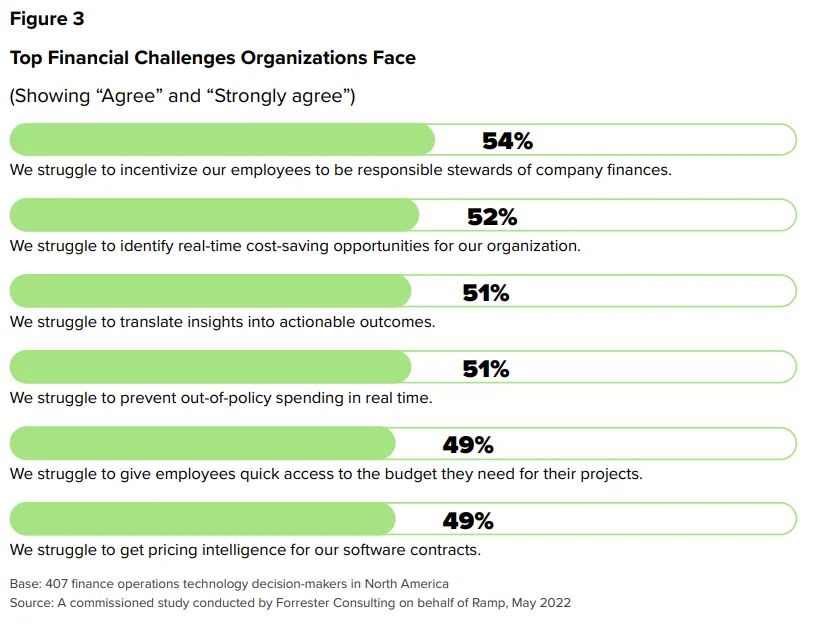
Accountants can make a difference by embracing sound data analysis principles that remove these obstacles.
Data analytics courses like the ones offered by the American Institute of CPAs (AICPA) will help you upskill and deliver better insights to your company.
The Benefits of Automation for Accountants
Now that we've established you must embrace automation, what are some tangible benefits you can expect from it? Here are the most important ones.
Benefit 1: Automation Reduces Errors
Automation reduces workflow human errors because machines do not suffer from fatigue or work overload and are able to query large volumes of data. By leaning on automated reconciliation with Numeric, your team is able to easily spot transaction-level discrepancies without having to dig hours through records.
For instance, increasingly you can rely on a bot to reformat an extensive data set without worrying about missing decimal points or inadvertently adding too many zeros to numbers. And accountants currently use Numeric’s GAAP bot to quickly grasp the right GAAP fundamentals that inform their work.
These bots can also flag missing data before you dive into your analysis, preventing incorrect conclusions.
Benefit 2: Automation Saves You Time
Automation will save you from tedious clerical tasks like cleaning data or sifting it for analysis.
For instance, AI can generate accounting policy first-drafts that prevent the time-consuming need for starting from scratch.
AI-enabled PDF parsers instantly pull key numbers from bank statements without the need for manual entry. You can also roll forward and tag balances for transfer from temporary to permanent accounts at the click of a button.
With better integrations and APIs, software can generate journal entries automatically, giving you more time to conduct strategic work.
For small business owners relying on Quickbooks primarily to prepare tax returns, life just got much easier.
Benefit 3: Automation Gives You Faster Insights
Your company's executives want strategic insights as quickly as possible. Automation gives you more time to dive into strategic work, helping you deliver insights faster.
Automation also enables you to parse data quickly. For instance, you can use an AI bot to retrieve or summarize data sets in easily understood language.
Your company will understand the results of your analysis faster, making your role even more valuable.
Will Robots Replace Accountants?
Robots and automation will replace some accounting tasks but are unlikely to replace accountants. Accounting has always faced technological updates, and accountants have always adapted to them.
The AI-led automation wave will only benefit accountants, much like previous technological improvements. The future accountants will thrive by aligning themselves with these trends, delivering more value than ever to their companies.















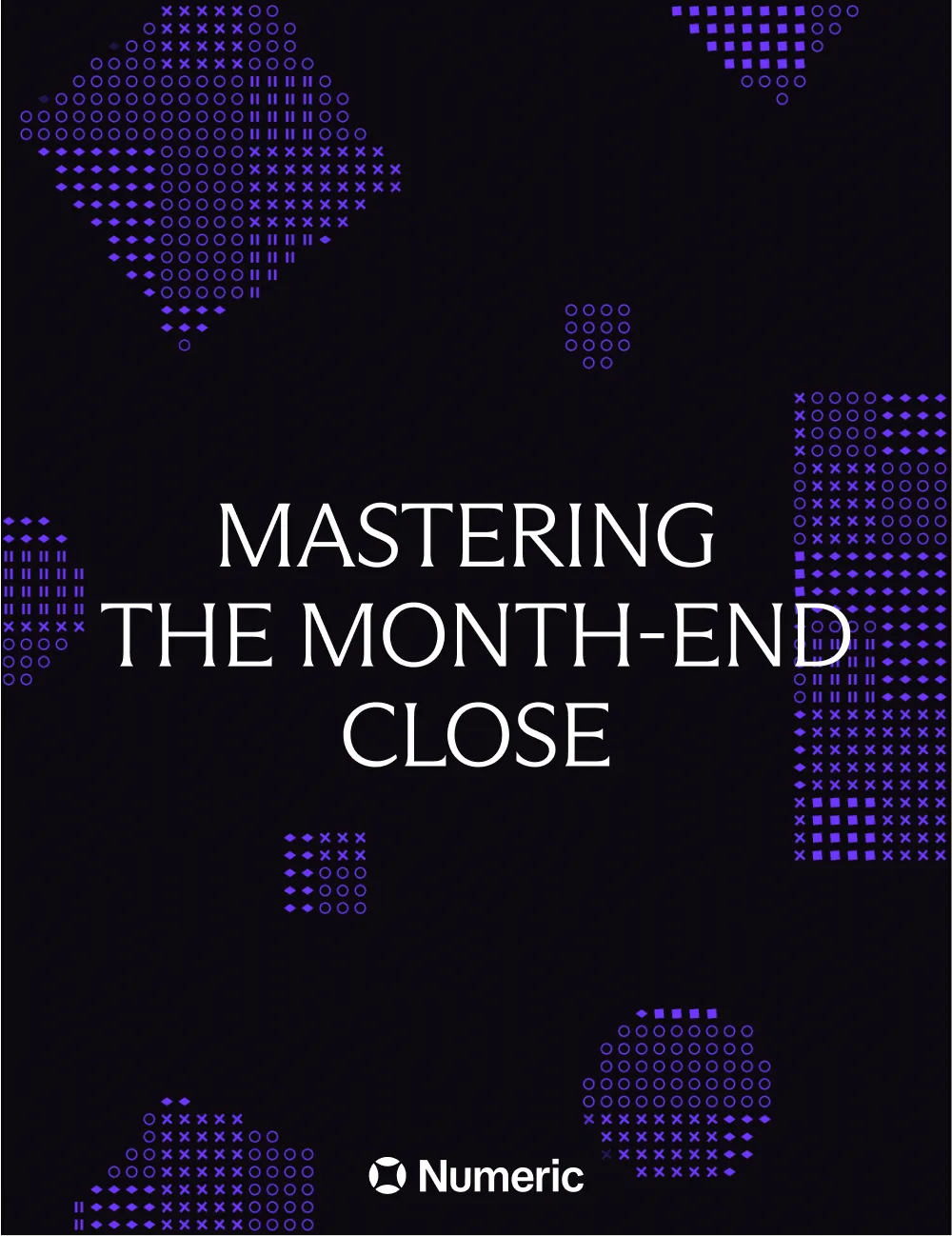

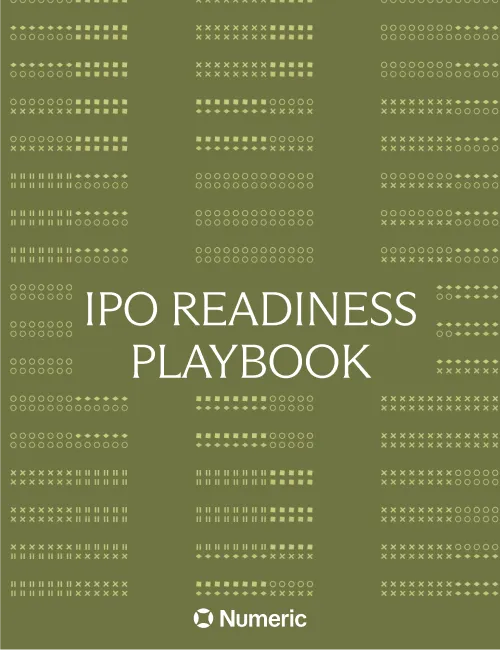

.png)
.png)
.png)